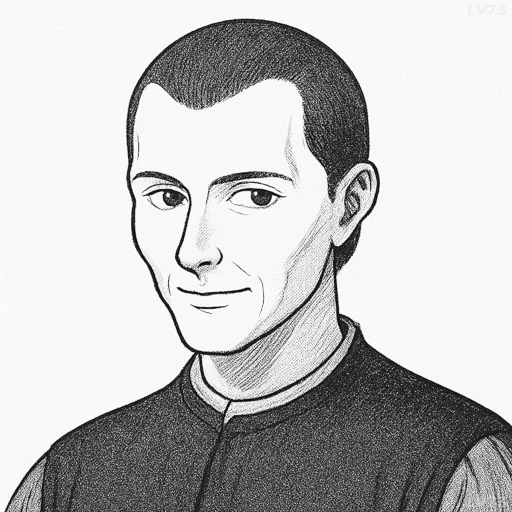“The one who adapts his policy to the times prospers, and likewise that the one whose policy clashes with the demands of the times does not.”

- May 3, 1469 – June 21, 1527
- Born in the Republic of Florence (Italy)
- Political thinker and diplomat
table of contents
Quote
“The one who adapts his policy to the times prospers, and likewise that the one whose policy clashes with the demands of the times does not.”
Explanation
In this statement, Niccolò Machiavelli highlights the importance of adaptability in political leadership. A ruler or leader who is able to adjust their approach based on the changing circumstances of the times will be more successful than one who is rigid or out of touch with the needs of the moment. Machiavelli stresses that the success of a ruler does not simply depend on their adherence to fixed principles, but on their ability to recognize and respond to the shifting political, social, and economic conditions around them. In other words, flexibility and pragmatism are key to maintaining power, as the world around the ruler is in constant flux, and failure to align policies with these changes can lead to failure or ruin.
Machiavelli’s focus on adaptability is consistent with his broader political philosophy, which places realism over idealism. Rather than advocating for a ruler to follow a particular moral code or unchanging doctrine, he argues that they must be willing to shift their strategies and tactics according to the specific needs and realities of their time. This could involve changing alliances, employing new tactics, or altering public policy to reflect the desires or fears of the people. A ruler who is inflexible or out of sync with the demands of the moment is likely to face rejection, rebellion, or even overthrow, as their policies will seem outdated or irrelevant.
In modern contexts, this idea remains relevant in both politics and business. Leaders who can adjust their strategies to meet the current challenges—whether that means embracing new technologies, responding to public opinion, or navigating global shifts—are more likely to thrive. For example, during times of economic downturn, political leaders who can adapt by implementing policies that address immediate financial concerns, like stimulus packages or job creation programs, are more likely to gain public approval and remain in power. Similarly, in business, companies that can pivot quickly to respond to market demands, such as adopting new technologies or altering products to fit consumer needs, are more successful than those that maintain rigid, outdated strategies. This principle also applies to the military or diplomatic strategies of modern states, where adaptation to new threats or changing international dynamics is crucial for maintaining influence and security. Machiavelli’s focus on pragmatism in leadership encourages leaders to continuously reassess the political or economic landscape and adjust their approach to ensure long-term success.
Would you like to share your impressions or related stories about this quote in the comments section?

